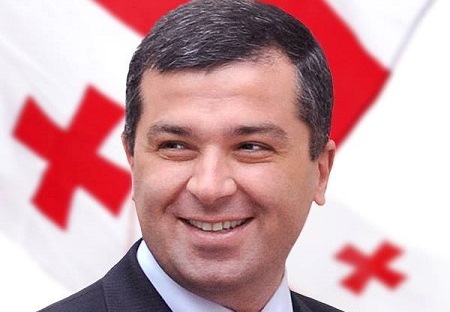Prosecutors probe UNM Bakradze’s undeclared assets

Georgia’s Chief Prosecutor’s Office has launched an inquiry to investigate the allegations United National Movement (UNM) Parliament Member David Bakradze did not declare his assets.
The Prosecutor’s Office is investigating claims Bakradze concealed £261,757 (754,700 GEL) at the 2014 Asset Declaration of Public Officials when he was supposed to reveal his assets.
In particular, the probe aimed to examine the origin of the money which was deposited in two separate bank accounts in the name of Bakradze and his wife with London-based HSBC bank.
According to Georgian law, all public officials must indicate at an Asset Declaration if they or their immediate family members had cash valued at more than 4,000 GEL.
However at last year’s Asset Declaration, Bakradze declared he only had 15,000 GEL and $10,000 USD cash, while the two HSBC accounts were not mentioned.
The investigation launched yesterday under two clauses of Georgia’s Criminal Code, including legalization of illicit income deliberately providing incorrect or incomplete data in the annual asset declaration. Information about these bank accounts was released on Wednesday by local news agency Pia.ge.
A day earlier, a copy of a document which outlined the July 2014 closure of Bakradze and his wife’s high-interest Deposit Bond, which was on a three-year fixed term, was posted on a fake Facebook account by an anonymous user.
Bakradze, who served as the chairman of Georgia’s Parliament in 2008-2012, confirmed he had $400,000 USD in HSBC’s deposit in 2009.
In a written statement he said the money came from the sale of his father-in-law’s house in Tbilisi’s Krtsanisi district in 2002.
"The property was purchased by the Swiss Embassy. The money has nothing in relation with the state budget,” Bakradze said.
Bakradze believed his political opponents "published confidential private information for the purpose of revenge”.
"The fact that correspondence between the bank and its client was made publicly available demonstrates the Government’s continued practice of illegal surveillance,” he added.
Meanwhile, think tank Transparency International Georgia (TI) said if this emerging information was true and Bakradze and his wife had bank accounts in any foreign bank in 2013, this was a violation of local law.
In its statement, TI said the Prosecutor’s Office should also probe if the private correspondence between the bank and Bakradze was obtained legally. Under local law, obtaining private information illegally is a punishable offence.
 Tweet
Tweet  Share
Share